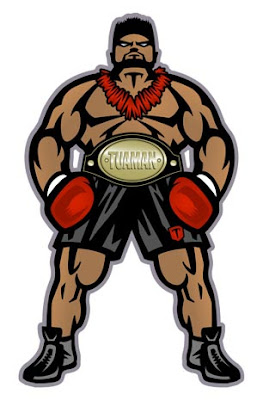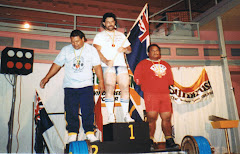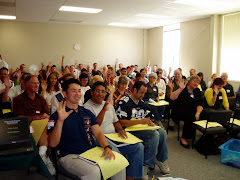I seem to be on bit of run with this goal setting stuff. This is my 4th blog on tips and technques on how to do goal setting and planning and I'm sure I'm going to write another after this!
So... read each of them and take from them what works for you in the coaching situation you find yourself.
Trainers: This is an often needed training program so I'm confident there's info here that will add to what you currently do in delivering goal setting & goal getting for your clients.
I'm not convinced that any one of the models I've presented are complete in themselves, yet combined they are exceptional.

This is my version of the SCORE model popularly found in NLP and orginated from Robert Dilts of the USA. It's a simple model
(always my preference), yet very effective
(a great combination).The S.C.O.R.E Model:SITUATION:This is about the current situation your coaching client faces. The problem on hand - now. The way things are for your client NOW. Each of the components of SCORE have a specific time frame you need to be aware of. Exploring the SITUATION is about discovering what's happening in the moment. What are they faced with? How bad is it or not? By doing this you can create a strong move away from if it's a bad situation or a situation that they wish to address i.e. they be doing well and would like to be doing much better.
The questioning that you do at this stage will give you a great deal of information. As you do and find out what they are experiencing, you'll also discover what possible options emerge to assist them to improve the situation they find themselves in.
CIRCUMSTANCES:
This is about what has happened that lead to or caused
(another "c") the current situation that they have. Your questions at this stage are about the past. Questions that discover what has happened to cause the current situation are asked of your client.
- What caused this?
- How long has this been happening?
- What decisions have lead to the situation?
- What are the circumstances that happened to create this situation?
These questions plus the one's you have asked about the current situation, gather information to assist you in finding a way forward. Not in all situations is it necessary for you to find the "cause". It most definitely is possible for us to coach a person to a solution, without knowing the cause or circumstances of "why" they have the situation.
OUTCOME:So knowing the situation the client is in and the "circumstances" that have happened to put them in their current "situation" - what do they want?
This is the outcome question - "What do you want?" This question is future orientated and about what they want that is beyond their current situation. This requires them to be aw

are of what they have and where they want to be (gained from situation and circumstance).
Your questions will be about setting the outcome or goal they want to achieve:
- What do you want?
- What will change the curent situation?
- Knowing that you have what you have what do you want?
- How would you like things to be for you rather than what you have?
- What's the solution to your situation?
- What needs to happen so this never happens again?
These questions or similar variations of them, will focus the client on creating a way forward. Be very specific in defining what it is they want. Be precise at this stage and seek clarity of the exact goal or solution that will right the wrong or increase their experience. You will need to ask questions about your clients time frames, location, direction and intention
(not all may be appropriate). Moving them on and beyond the situation and circumstances of the present and past.
Footnote: An important couple of questions to ask here are:
- How will you know you have achieved it?
- What is the evidence that will let you know that you have achieved your outcome?
These questions give clarity and specificity to them knowing they have achieved their outcome.
RESOURCES:Having decided on the solution the next stage is decide on what the resources are that will support the outcome to be realised. The resources decided on will be a combination of internal and external resources i.e. attitude, mindsets, material or practical support items. Quality control the resources chosen. The questions asked at this stage, look and sound like:
- What do you need to gain the resources to achieve your outcome?
- What needs to happen to secure the resources?
- Are the resources available to you now?
- What do you need to do to gain these resources?
- When will you do this?
- Are the resources you need within your personal control - if not what needs to happen to gain their support?
Each of their resources may need to be goals in themselves and require time frames and specific steps to gain the necessary resources. Be specific about each of the resources identified and quality control check them as being required to achieve their outcome.
EFFECT:This is the risk management component of the goal getting acronym SCORE. Questions asked here are questions that bring awareness of the effect of achieveing their goal. It will also include questions that ask about the ecology, expense and effort
(all e's) required to achieve their outcome. These questions will be similar to:
- What if it doesn't work?
- What are the risks?
- What could may hinder your progress?
- What's worse case scenario for you?
- Are you prepared to make the effort required of you?
- When things could go wrong & what will you do - what is the solution?
- Are you prepared for both the positive and negative effects of you achieving your outcome?
By doing this you will make the outcome more robust and complete for your client. Ensuring their succes and inturn yours as their coach or trainer. Problems may come up as a result of these questions. If so, ask what the solutions are and the resources needed to overcome any possible setback.
Closing Comments:All right then! There you go. That'll get you going - for now. Remember to incorporate some or all of the other techniques I've written and I am confident you will have at your disposal an excellent goal setting model. Wishing you well...Picture: At the top: Robert Dilts - not met him yet but thought it'd be good to picture him here as it's originator.



 are of what they have and where they want to be (gained from situation and circumstance).
are of what they have and where they want to be (gained from situation and circumstance).

 the need to align with other time frames that may be out of your control. i.e. a goal of learning to ski may not be possible until the winter months.
the need to align with other time frames that may be out of your control. i.e. a goal of learning to ski may not be possible until the winter months. e present. I'm assuming that you will apply the tips I gave you in the previous blog. I find the popular S.M.A.R.T. formula of goal setting rather tedious and present in this and my previous blog another alternative.
e present. I'm assuming that you will apply the tips I gave you in the previous blog. I find the popular S.M.A.R.T. formula of goal setting rather tedious and present in this and my previous blog another alternative. 










































